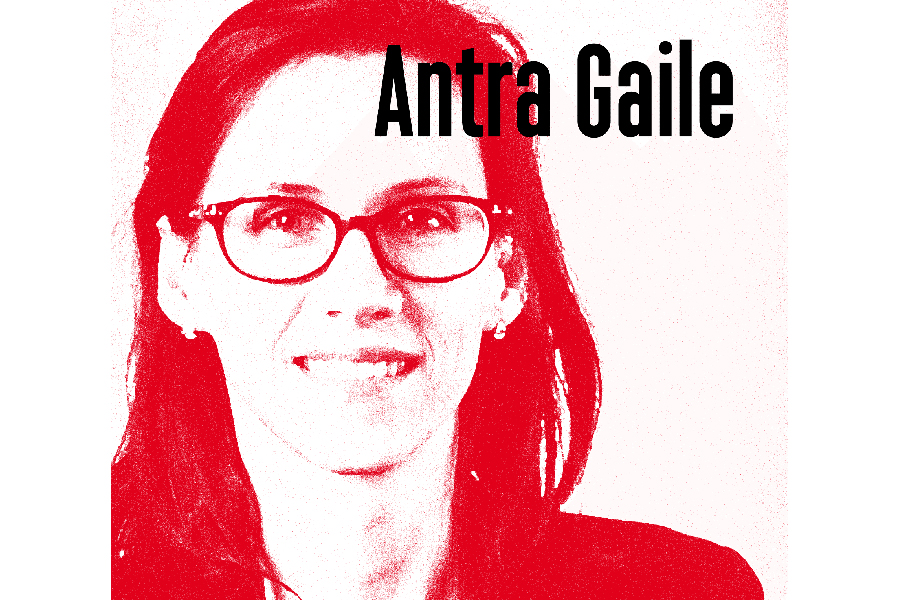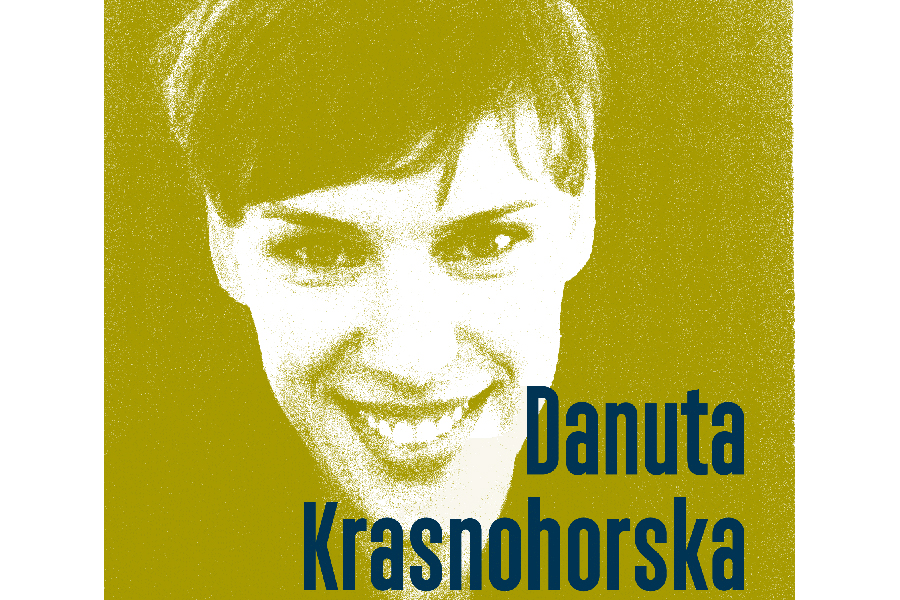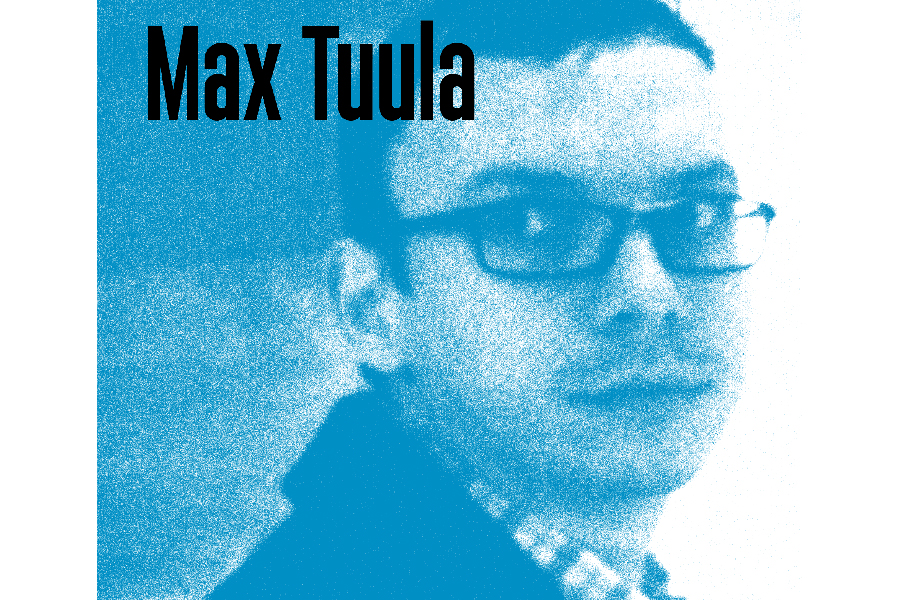Today we present Antra Gaile of Latvia, Danuta Krasnohorska of Poland, and Max Tuula of Estonia
 Emerging Producers 2015: Antra Gaile, Latvia
Emerging Producers 2015: Antra Gaile, Latvia
What Antra Gaile expects the most from Emerging Producers is to meet producers who could become her friends and future partners.
She holds a degree in Sociology and is currently studying for her MBA at Riga Business School. In 2012, she joined Mistrus Media after being in charge of marketing communications at the biggest daily newspaper in Latvia. At Mistrus Media, she has gained experience in producing creative and historical documentaries, including six short documentaries about Riga directed by well know European directors.
Antra likes Taxi by Jafar Panahi, penguins, All Men Are Mortal by Simone de Beauvoir, woollen socks and Richard Avedon.
FNE: What are your hopes and expectations from Emerging Producers?
I think my expectations go hand in hand with the main idea of Emerging Producers: I look for inspiration, ideas and networking. I hope to meet young professionals who are ready to share their experience, knowledge and ideas. I hope we will have great discussions and exchange opinions regarding producing in different European countries. But what I expect the most is to meet producers who could become my friends and future partners. Of course I also hope to enjoy the Jihlava IFF programme.
FNE: What are you bringing to Emerging Producers?
First of all, I am “bringing” me, with all my knowledge about production perspectives and opportunities in Latvia and ideas as a partner. Secondly, I’m coming with a slate of projects I’m working on now at Mistrus Media. The documentary People from Nowhere directed by the Estonian director Jaak Kilmi in collaboration with Gints Grūbe is a personal story about the daughter of a Cold War double agent.
The documentary in development With the Eyes of a Child directed by the acclaimed Latvian director Ivars Seleckis follows children from different places of Latvia, returning every seven years to take snapshots of their lives. The Boy with the Dog directed by the talented Latvian director Davis Simanis and currently in development is a coming-of-age feature film about a boy who saved 50 Jews from death. This is my first fiction project and I am producing it together with Gints Grūbe.
FNE: What are the coproduction possibilities for documentary producers in your country?
There are two main funding bodies in Latvia, the National Film Centre of Latvia and the State Culture Capital Foundation.
This year the National Film Centre of Latvia re-established the minority coproduction scheme which I am sure will strengthen coproductions with Latvia. The intention for 2016 is to strengthen the coproduction between the Baltic States, but all projects are welcomed at the open call once a year. Creative input on the Latvian side as well as technical involvement in the production is preferable and at least 65% of the funding has to be spent in Latvia.
Also I have to mention that the national public broadcaster Latvian Television coproduced for the first time a documentary in cooperation with the Estonian and Lithuanian national broadcasters.
And then there are two tax incentive schemes for international production companies willing to produce in Latvia: Riga Film Fund was initiated in 2010 and the National Co-Financing Fund started in 2013. Both offer up to 25% combined cash-rebate for international film projects.
Among other opportunities, I want to mention the co-financing forum for international documentary projects Baltic Sea Docs which has a 15 year tradition in Riga, and also Riga International Film Festival and Riga International Film Festival 2 Annas as they both promote content from this region.
FNE: Which producer is your inspiration and ideal?
My main source of inspiration is the documentaries themselves, but of course behind every film is a team of professionals which gives us the opportunity to enjoy a great cinema experience. So, if I would start to name each film that has inspired me in some way, the list would be endless.
However, there are different people from whom I have learned important lessons regarding producing. Of course, the first person I have to mention is Gints Grūbe, the co-owner of Mistrus Media, who talked me into producing and who believed in me (I guess) from the first moment even thought I didn’t have previous experience.
I would mention also the Bulgarian producer Martichka Bozhilova, a fascinating professional from whom a lot can be learned about the art of producing. Martichka can be most likely called an “inspiring producer” for me. Each time I met her has enriched me in mysterious ways.
Of course, I can’t not mention the professionals I have worked with: directors, cinematographers, editors, other professionals and also my colleagues at Mistrus Media. Their ideas, passion, and devotion to documentaries are an endless inspiration and an encouragement for me to keep going.
Filmography
Cats in Riga directed by Jon Bang Carlsen, 17 min, Latvia, 2014; producer
The Old Jewish Cemetery directed by Sergei Loznitsa, 20 min, Latvia/Netherlands, 2014; coproducer
Over the Roads, Over the River directed by Audrius Stonys, Rainer Komers, Bettina Henkel, Sergei Loznitsa, Jon Bang Carlsen, Jaak Kilmi and Ivars Seleckis, 140 min, Latvia, 2014; producer
Ghetto Stories. Riga directed by Linda Olte, 60 min, Latvia, 2013; producer
Contact:
Mistrus Media
Blaumana Street 11/13-12, LV 1011, Riga, Latvia
Phone: +37 167 313 314; +37 129 195 876
This email address is being protected from spambots. You need JavaScript enabled to view it.
www.mistrusmedia.lv
 Emerging Producers 2015: Danuta Krasnohorska, Poland
Emerging Producers 2015: Danuta Krasnohorska, Poland
Danuta Krasnohorska considers Emerging Producers a perfect platform to share ideas, knowledge and experience and to build future partnerships. She is participating in Emerging Producers at the 19th Jihlava International Documentary Film Festival (27 October - 1 November 2015).
During her studies, Danuta Krasnohorska started working as a rights-clearance consultant at TVN. After 2009, she was project manager and junior producer at an independent production company focusing on international coproductions. In 2012, with a MA degree in Law from University of Warsaw, she established together with her colleague Katarzyna Siniarska CoLab Pictures, an independent production outfit producing creative documentaries.
Danuta Krasnohorska likes Der Banker: Master of the Universe by Marc Bauder, Françoise Hardy’s Le Temps de l’Amour, roosters, and her approach to filmmaking are the words of Tim Bevan: “Ultimately, films are a director’s medium. They have control. It is my job to create the right environment for them to do the best job.”
FNE: What are your hopes and expectations from Emerging Producers?
I hope to expand my professional network and to meet a great group of young producers from all over Europe who are curious, innovative and open-minded. I consider Emerging Producers a perfect platform to share ideas, knowledge, and experience and to build future partnerships.
FNE: What are you bringing to Emerging Producers?
Right now I’m finishing the production of a feel-good documentary Czech Swan directed by the awarded young director Aleksandra Terpinska and coproduced by Czech TV. We’re also developing the full-length documentary Love Express. The Strange Case of Walerian Borowczyk (working title) directed by Kuba Mikurda.
The project is entering the production stage now; we’ve already shot Terry Gilliam, Slavoj Žižek and Andrzej Wajda. We have an amazing team on board, Radek Ładczuk as DoP and Kamil Polak as an author of animation. I am working on several different projects, each in a different stage of development and production. I hope you’ll see them soon.
FNE: What are the coproduction possibilities for documentary producers in your country?
It is hard not to acknowledge the growing importance of documentary films on the Polish market. Every year, documentary films attract more viewers and can likewise compete with fiction films from the cinema distribution. At the same time, Polish filmmakers and funding bodies have also become more open to external themes moving their focus away from local issues traditionally present in Polish cinema. Fortunately, if you apply for the Polish Film Institute support, the project must pass a cultural test.
Sources of financing are pretty much the same as for the Polish majority productions. The Polish Film Institute, which is a major funding body, supports two or three minority documentary coproductions per year. There is also a network of regional film commissions and funds which are working alongside Film Commission Poland, which offers assistance to foreign investors and film producers looking for Polish partners or planning to shoot film in Poland.
If the film has a potential for Polish TV audience, the Polish public broadcaster (TVP) may enter the project. And if it has a strong international potential and is also a character-driven documentary, HBO Poland may support it as well.
When it comes to tax incentives, there are no special rules for film producers or distributors; they are treated as ordinary taxpayers. However, we’re hoping for some kind of tax benefit for film productions to be introduced within the year.
All in all, Poland is a friendly country for international coproductions, boasting experienced and talented crews as well as producers who can provide professional services.
FNE: Which producer is your inspiration and ideal?
The French producer Pierre-Olivier Bardet is a big inspiration for me. He has produced one of the most beautiful documentary films about art. When it comes to the Polish market, I look up to two producers, Ewa Puszczyńska and Maciej Kubicki.
They have a deep knowledge and a broad understanding of the industry. I admire both of them for their personal taste, openness, hard work and the exceptional ability to work with directors and scriptwriters in creating a unique storytelling.
Filmography
Contact:
CoLab Pictures
Promyka 5/21, 01-604, Warsaw, Poland
This email address is being protected from spambots. You need JavaScript enabled to view it. , This email address is being protected from spambots. You need JavaScript enabled to view it.
www.colabpictures.com
 Emerging Producers 2015: Mas Tuula, Estonia
Emerging Producers 2015: Mas Tuula, Estonia
Max Tuula has heard that Emerging Producers gives you specific information on how to more effectively look for funding. He is participating at Emerging Producers at the 19th Jihlava International Documentary Film Festival (27 October - 1 November 2015).
Before turning to filmmaking Max worked as a journalist for various film magazines in Moscow and Europe. He also participated in the production of several short films screened in various festivals from Berlin to Abu Dhabi. In 2012 he founded together with Maria Gavrilova the production company Marx Film in Tallinn, focusing on documentaries and debuts. His first project was the experimental docudrama I Don’t Love You by Kostomarov/Rastorguev which screened in various festivals.
Born in 1980, Max admires Ulrich Seild’s Paradise, Wassily Kandinsky and Berlin, Alexanderplatz by Alfred Döblin.
FNE: What are your hopes and expectations from Emerging Producers?
I love Jihlava, the festival and its industry programme (and their light and humorous undertones). I still cherish the good impressions and still use the contacts I got there when our first film, I Don’t Love You, received a nomination from East Silver. I am also very glad that the Estonian film Anthill by Vladimir Loginov (Allfilm), which is truly brilliant, will participate in one of the festival competitions this year. Its producer, Elina Litvinova, was one of the Emerging Producers a couple of years ago.
I heard a lot about how useful and insightful the workshops and masterclasses from Emerging Producers are. Rumour has it that here you can receive very specific information on how to more effectively look for funding, the kind of information no website can tell you! I assume it might be true, because a few years ago in Jihlava I happened to attend a masterclass of Andrea Hock, an Austrian sales agent: I had met her before and hadn’t been expecting to learn about distribution much more that I had already known, but the way the lecture was organized, structured and provided with materials and numbers really helped me to set it all in motion.
I also hope to bring more attention to our projects. Frankly, I don’t feel that producers need to publicize themselves too much; they have to prove themselves with the work they do. I also believe filmmaking is always teamwork, and I feel a little awkward to take all the credit: for instance, I wish my partner Maria Gavrilova, with whom we founded our production company Marx Film (an abbreviation of Maria & Max), could also share the title of an Emerging Producer with me. But I still think it would be flattering (and helpful) to see my face on an Emerging Producers poster on the way from Potsdamer Platz to the European Film Market during the Berlinale one day next February.
FNE: What are you bringing to Emerging Producers?
I am bringing our experience of documentary filmmaking in harsh conditions, without others understanding what we are trying to do, against the wishes of the government of the country where the film is set—which eventually proves to be rewarding and has eventually brought us a bit of international success. I’m not really sure if it’s such good knowledge, though:)
And I definitely want to make people aware of our latest projects: Kiev/Moscow about the recent events in Ukraine which received a Special Mention in Locarno and is hitting festivals; the long-suffering On the Edge of the Snow by Irina Zuy about the long-suffering tiny nation of Yaghnobi, living for centuries in the distant highlands of Tajikistan; and Release Oleg Sentsov by Askold Kurov our Kafkaesque story about the Ukrainian filmmaker Oleg Sentsov, unjustly arrested by the Russian security service in Crimea after its annexation and sentenced to 20 years in prison. I think these documentaries and especially the topics they touch upon could use more attention.
FNE: What are the coproduction possibilities for documentary producers in your country?
Estonia is astonishing in this respect: it is very open to coproduction. The main state-backed body for film support, the Estonian Film Institute, twice a year accepts submissions to support coproductions with a minority Estonian participation. The Estonian Film Commission willingly provides all the advice you need in order to shoot in the country.
The most recent update is that starting next year the Ministry of Culture will allocate special grants to foreign producers who want to make their films in Estonia. A couple of local funds aim at bringing more film projects to their respective regions. And, of course, Estonian producers are also ready to cooperate and are very easy to approach.
One of the most successful Estonian films, Zaza Urushadze’s Oscar-nominated Tangerines (Allfilm and Cinema 24) is a coproduction with Georgia, with a Georgian director attached. But you still have to remember that coproduction with Estonia requires a very strong involvement of local professionals, and the funding you apply for has to be spent in the country.
FNE: Which producer is your inspiration and ideal?
As you know, there’s nothing ideal on planet Earth. I could give so many names that inspire me, but I won’t, especially because it concerns the colleagues who keep working and releasing films. I’m afraid I might forget someone. However, I will mention the Portuguese producer Paulo Branco: I really admire how decade after decade he continues to make groundbreaking, risky, high-brow, artsy films that belong to the areas so distant from what is commonly associated with “commercial success”.
There’s also another name I can’t leave out: Russia’s Alexander Rodnyansky who started his career as a documentary director. Being later involved in audience-oriented TV production, launching multimillion blockbusters and making his way to Hollywood (he is also one of the producers behind Cloud Atlas and sequels to Machete and Sin City), he keeps financing the films by Andrei Zvyagintsev (Elena and Leviathan), Russia’s main trendsetting festival Kinotavr and small documentary projects (by documentary directors Pavel Kostomarov and Aleksandr Rastorguev with whom we also have worked). Rodnyansky didn’t avoid mistakes and controversial steps, but his experience helps me think that our labor is not in vain.
Filmography
Kiev / Moscow. Part 1 directed by Elena Khoreva, 60 min, Russia/Ukraine, 2015; coproducer
The Term directed by Aleksei Pivovarov, Alexander Rastorguev and Pavel Kostomarov, 83 min, Russia/Estonia, 2014; coproducer
I Don’t Love You directed by Pavel Kostomarov and Alexander Rastorguev, 85 min, Russia/Estonia, 2012; producer
Contact:
Marx Film
Keemia 19, 10616, Tallinn, Estonia
Phones: +16 175 437 312, +37 253 040 483, +79 261 752 572
This email address is being protected from spambots. You need JavaScript enabled to view it.
www.marxfilm.com



















